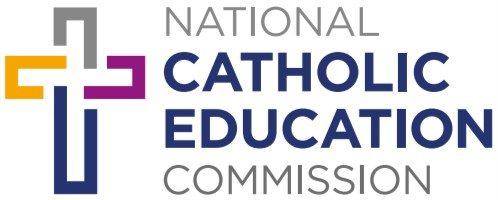Manus McLoughlin is a Stage 3 teacher at Galilee Catholic Primary School, Bondi, with seven years of teaching experience in Ireland and Australia. In 2022, he transitioned from teaching in Ballymun, a socio-economically disadvantaged area in Ireland to the privately funded Galilee Catholic Primary School in Bondi, a move that presented a significant challenge due to the vastly different socio-economic environments. This transition initially sparked self-doubt, as the focus shifted from core student welfare needs to new academic expectations, causing him to question if he could rise to the challenge. Successfully navigating this new environment, which required adjusting to different academic and parental expectations, only deepened his resolve. These experiences strengthened his commitment to becoming the kind of teacher he wished he had as a child – a supportive, present, and compassionate guide.
Grounded in his Catholic faith, Manus draws inspiration from the values of compassion, service, stewardship, and excellence. These guide his teaching and help him nurture students’ academic, social, and emotional growth. Through school-wide initiatives and individual support, he fosters confidence, character, and a love of learning, demonstrating the transformative power of Catholic education.

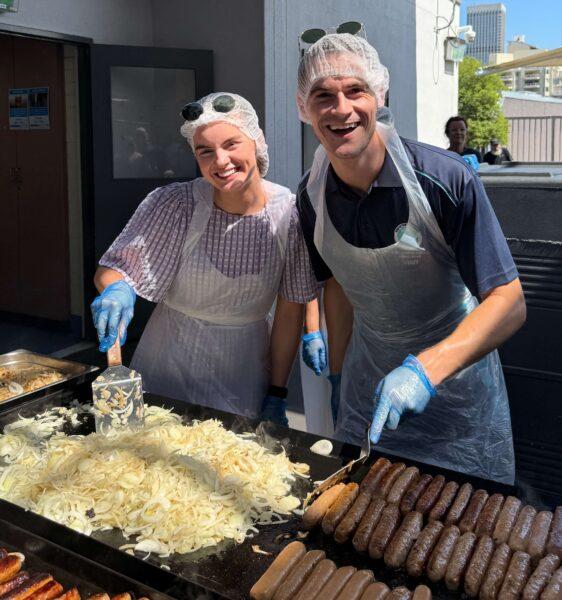
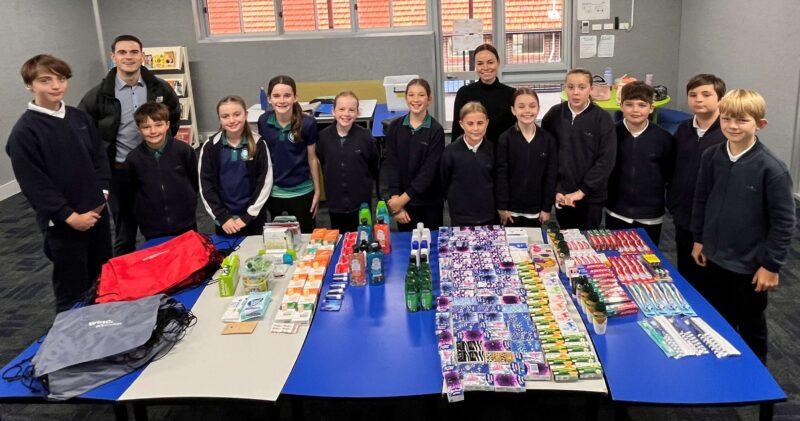
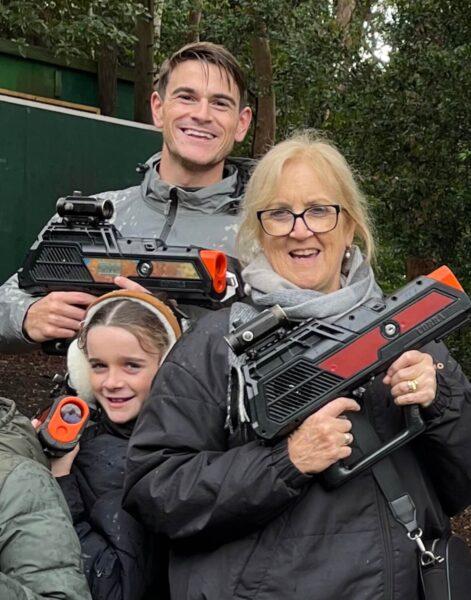

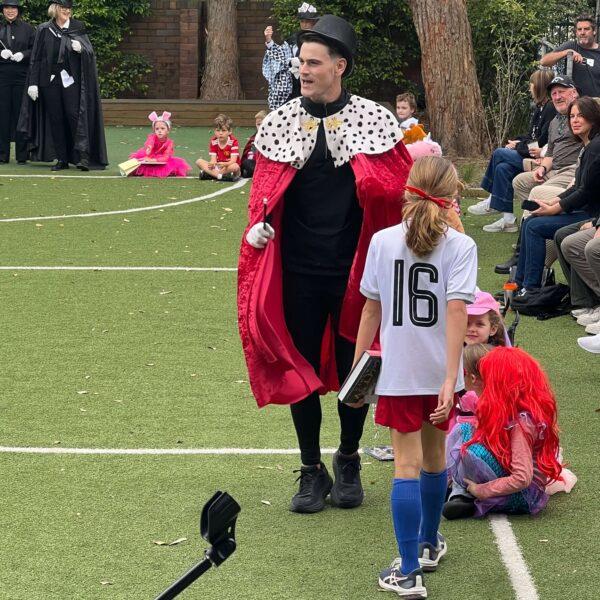
What inspired you to become a teacher?
I come from a family of educators and grew up surrounded by my parents and my siblings working as teachers in high school. I am the only teacher in my family who works in primary, and this choice is deeply personal. As a child, I was bullied in primary school, and I wanted to become the kind of teacher I needed back then, one who is truly present for children, as I felt no teacher did anything about the bullying I experienced. Beyond those family influences, the main reason I became a teacher was the desire to be a positive male role model and help lay the foundational skills for students at such a transformative age.
What first inspired your love for teaching and how has that passion shaped the way you motivate and support your students today?
I am deeply motivated by the opportunity to focus on the holistic development of students, fostering both academic growth and crucial social emotional skills that often are overlooked due to a hyperfocus on academic performance. I believe in establishing strong rapport to build student self-belief, which is the foundation for all motivation in my classroom and for life beyond the four walls of a classroom.
Can you share a moment in your career where you really felt you made a difference?
I feel like I have made a difference by supporting the Year five and six students to plan, prepare, and deliver a full week of events for each of our core school values: Stewardship, Service, Compassion, and Excellence. These weeks are comprehensive, jam packed full of events for all year groups. Each week involves a collaborative art mural, linked to the value, which will go on display in the foyer for the whole community to see. Seeing the older students take ownership and leadership in promoting our values to the entire school community has been a major highlight. These weeks have really turned what could easily just be a list of words into the living, breathing expression of our school community.
Is there a story from your time teaching that has inspired you or had a deep impact on you?
Before moving to Australia, I held a permanent contract in a junior school in a socio economically disadvantaged area in Ballymun, Dublin, Ireland. Moving to the eastern suburbs in Sydney meant I was now teaching in schools in a socio economically advantaged area, which was of course something I was excited to gain experience in.
At first, I felt a strong sense of imposter syndrome because the priorities were so different. In my school in Ireland, the focus was often on attendance, ensuring students weren’t hungry, and dealing with a high percentage of major mis-behaviours every day. It was a big change to see the main focus shift to academic, creative, and sporting excellence.
My first parent teacher meeting here was a shock to the system, as parents queried the grades I assigned, asking detailed questions I was not used to, such as, “Why is my child a thorough and not an extensive?”
It did not take me long to adapt, but I struggled with the doubt. The story that had a deep impact on me is when, at the end of last year, I had finished my first ever year teaching Stage 3 students. I felt like I had spent most of the year finding my feet and, as such, didn’t feel I had done a great job.
I was proven wrong when every single parent of the Year five students decided to lobby the principal by email to have me as their Stage 3 teacher again next year when the Year five’s moved into Year six. This was deeply impactful because it was the first time I had concrete evidence to the contrary that I was not an imposter but clearly a valued member of the school community. This gave me a massive self-esteem boost, and I regularly refer back to this moment when I doubt my teaching ability, reminding myself that I meet the high standards here.
Can you share a moment when you saw a student’s confidence or skills transform and felt that your teaching had made a lasting difference?
This transformation came through dedicated rapport building and self-esteem work with a boy who displayed behavioural problems and a lack of eagerness in Year five. Knowing I would be his teacher in Stage 3, I was ready to focus on him.
It took a lot of time focused on building trust, self-esteem, and focusing on reframing Automatic Negative Thoughts (ANTS) to cultivate a growth mindset. All of a sudden, the desire and eagerness to do well in school showed up. It was not long after that this student was reading novel after novel for homework, after having had issues completing any homework or reading the previous year.
This student confided in me towards the end of the year when he was worried about going to high school, and I felt the informal conversations we had about choosing friends wisely had stuck. Fast forward to this year, and this student has returned to the school at dismissal just to say hello. During one of these brief interactions, I quickly asked him if he stuck to the plan we co constructed together in Year six. He said he stuck to it rigidly and made sure not to make the same mistakes choosing friends in the past. Unprompted, he said I inspired him and he wanted to say thanks.
Bumping into this student in the community and hearing how well he is doing in high school reminds me just how transformative our profession really is.
How does your faith shape your teaching approach?
Faith guides everything I do. Coming from a strong Catholic family, my dad is the chairperson of the Parish council, my sister played the church organ and ran the local church choir, and I was an altar boy and tenor in the choir, I was always immersed in the faith. I studied to be a primary school teacher in a Catholic college in Dublin and have applied for jobs in Catholic schools ever since. I am a firm believer that education and faith can go hand in hand, and I regularly use the morals and teachings of the Catholic Church to guide how I deal with small social incidents on the playground, encouraging students to treat others with compassion and respect just as Jesus taught. Being able to ask students, “What would Jesus have done?” often provides enough pause for them to recognise their wrongdoing and, crucially, to reflect on the positive action they should take by considering Jesus’ example. While school rules are important, using Jesus as a powerful, living model for behavior is just as impactful.
What’s the most rewarding part of teaching in a Catholic school?
For me, having taught in public, independent, and Catholic schools, I have to say it is the Catholic values of which our schools main four are: Compassion, Stewardship, Service, and Excellence. These values provide a purposeful framework that underpins the entire curriculum and community life.
What do you think is the most valuable role Catholic education plays in today’s society?
The most valuable role Catholic education plays today is its commitment to holistic formation, creating students of strong character, not just academic achievement. In a society that is often highly individualised, Catholic education uniquely integrates faith and moral values with the academic curriculum, providing a necessary moral compass for students to navigate complex ethical and social issues. By placing core values like Compassion, Service, and Stewardship at the centre of the school experience, it fosters a vital sense of community responsibility. It ensures students leave school not only with the skills for a successful career but, more importantly, with the ethical framework necessary to lead a meaningful life and contribute positively to the wider world.
